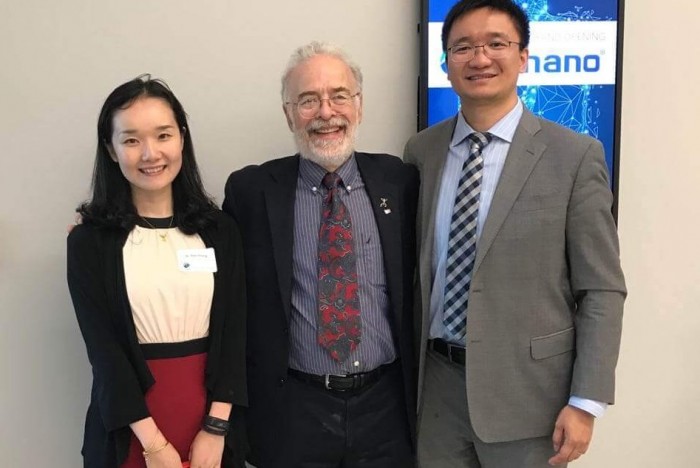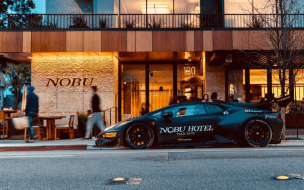Siyu studied biochemistry and environmental science in Sweden before deciding to relocate to Cornell University, in Ithaca, New York, to pursue a PhD in chemistry. But Siyu always had ambitions beyond research. After completing her PhD 18 months early, she sought out an MBA to learn how to take scientific research to market.
Cornell University is the only Ivy League school in the United States to offer its One-Year MBA alongside the traditional two-year format. In Cornell’s One-Year MBA class of 2019, most of the 69 students have advanced degrees in business, law, science, and medicine. 46% are women and 59% are international. For Siyu, the One-Year MBA was the perfect fit.
“I knew I didn’t want to do research for the rest of my life,” she explains. “I wanted to do something which would have a more immediate impact on society.”
From idea to launch
Even before her MBA, the foundations for that impact were already in place.
In the six-month gap between her PhD and her MBA, Siyu interned at the Center for Technology Licensing at Cornell where she scouted technologies for licensing and wrote patents for different technologies.
There, she happened upon her classmate Alex Yu’s PhD thesis. With guidance from Alex’s PhD advisor and third co-founder, Héctor D. Abruña, Siyu identified a technology that would increase the capacity and double the life of lithium-ion batteries. This battery technology had the potential to make electric vehicles last longer and consumer electronics lighter and cheaper.
Siyu drafted up the patents and she and Alex began work on their business plan. Siyu started the One-Year MBA at Cornell in summer 2013. By October, she’d incorporated her company, Lionano.
During her MBA, Siyu took Lionano through a class run by entrepreneurship professor and long-time mentor, Wesley Sine, on commercializing technology, putting the technology, financials, and a go-to-market strategy for her high-tech startup together. The class culminated in a business case competition which Siyu and her team won.
“I still remember the excitement and happiness on the day we presented our plan,” she beams. “We got a cup of frozen yoghurt as an award. At the time, that was enough!”
Bigger rewards were to come. Siyu was recommended to present her business to Cornell’s Board of Trustees. From that meeting, she got her first grant from startup accelerator PowerBridgeNY, a collaboration between Cornell Tech and Columbia University among others. Siyu, Alex, and Héctor then conducted market research which helped shape their long-term strategy and attract $9 million in investment.
How to become an entrepreneur
Today, Lionano is well-positioned to become one of Cornell’s most successful startups. In September 2018, Lionano raised $22 million in series B funding, bringing the total raised to over $30 million to date.
Now based in Woburn, Massachusetts, Lionano employs over 30 people. Siyu has 12 Cornell alumni in her core team. Without her experience on the Cornell MBA, turning Lionano into what it is today would have been “very difficult,” she says.
READ: When Should You Consider A One-Year MBA?
Aside from the mentorship, network, co-founder, and access to funding, Siyu says the One-Year MBA at Ithaca gave her something that she couldn’t get from her PhD. “It gives you a different perspective and a different way of presenting your ideas,” she explains.
“What I learned about marketing defined our go-to-market strategy for the company. I learned how to think strategically and about cash flow and financial projections—these are things I use on a daily basis and things you would never learn as a PhD student.
“For people with some years of experience, the One-Year MBA format is a very good option and doesn’t put as much financial pressure on you [as a two-year MBA],” Siyu continues.
“It’s also an excellent format for an entrepreneur because you don’t need a summer internship [taken between the first and second year of a two-year MBA]. You just need to learn all the key aspects of business operations for your startup and have the resources to help you build it—and you can do all that in a One-Year MBA.”
Siyu joined Johnson & Johnson’s Leadership Development Program after her MBA, a position she got without doing an internship. For three years, she gained more real-life management knowledge and bootstrapped her startup until, in 2017, she left Johnson & Johnson to concentrate full-time on her business.
“I never imagined I would have a company walking out of business school,” Siyu says, “but that’s exactly what happened.”








